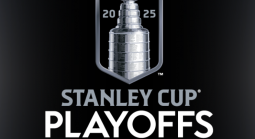Is Underdog Fantasy Legal in My State? DFS Company Pleads Its Case
Underdog Fantasy, fast becoming the USA's second largest Daily Fantasy Sports company, has gone on the offensive. The company presented a document on its website demonstrating why its product is legal in nearly all US states.
Underdog was founded in early 2020 but found a way to exploit a loophole whereby it provides a platform similar to that of sports wagering but does not have to obtain a license or pay the outrageous tax rates found in some states like New York and Pennsylvania (32% and up).
But with its explosive growth, Underdog Fantasy soon found itself treading on the territory of the big dogs in the space, FanDuel and DraftKings. Those two went running to the regulators.
Underdog Fantasy's primary game closely resembles the player prop bet parlays DraftKings and FanDuel offer. Customers will often rely on more intuitive handicapping offerings and player stats sites to make their picks on an Over/Under performance for a specific game
The DFS company's General Counsel Nicholas G. Green spoke to SBC in regard to their competitors bellyaching.
“The suggestion that the incumbents (e.g., DraftKings and FanDuel) would offer Pick’em fantasy if it were legal is an excuse for being caught flat-footed by innovators like Underdog, who continued to focus on fantasy sports when the incumbents shifted overnight to being sportsbooks.
“These are not risk-averse companies. Without a competitive fantasy product, they have adopted convenient legal arguments that should not be immediately accepted as good-faith disagreements on the law.”
Green expressed bewilderment as to why the two companies do not offer a pick'em type model.
“I’ll confess to not knowing why DraftKings and FanDuel do not have fantasy contests that are similar to Pick’em fantasy; I do not have any public or non-public information on that issue. Even though they have said publicly that they do not believe the contests fit within the definitions of state law, there is nothing legally binding them from reconsidering their conclusion now.
“What I do know is what is obvious from their public statements, shareholder filings, and activities in the past several years. The incumbents shifted their focus and resources rapidly from fantasy sports to the much greater revenue opportunities in mobile sports wagering. If you believe that the future of your business is sports betting, why bother innovating in fantasy sports?”
To an extent the complaining has worked. Wyoming already ordered Underdog Fantasy out while a handful of other states are reviewing their options.
In the meantime, Underdog Fantasy continues to witness explosive growth. Today they have a workforce of 300 employees across the United States. It also boasts the largest fantasy prize per the Best Ball Mania IV, totaling $15 million.
Why Underdog Fantasy is Legal, According to the Site
Underdog's fantasy contests, including our Pick'em fantasy contests, comply with the letter and spirit of state and federal law everywhere that we offer them. Further, Underdog holds all licenses and governmental permissions necessary to offer our contests, including licenses and permits for fantasy contests in every state that requires them.
Laws protecting fantasy sports have never encompassed a single format of contests. Legislatures drafted the definitions for fantasy sports broadly to allow myriad existing and future formats.
Federal law expressly excludes fantasy sports from the law prohibiting unlawful internet gambling. If a fantasy contest satisfies the conditions provided in the Unlawful Internet Gambling Enforcement Act, commonly known as the “UIGEA carve out,” then it is not a form of “gambling” under federal law. 31 U.S.C. § 5362(1)(E)(ix).
Underdog's Pick'em fantasy contests meet the letter of the accepted definition of fantasy sports because they are
contests of skill,
in which patrons create rosters of multiple athletes from different teams,
who play in real-world athletic contests, and
the winning outcomes are based on how all of the selected real-world athletes perform in the aggregate.
If a contest satisfies the definition of “fantasy sports,” then it cannot be considered sports betting as a matter of law. Nearly every state sports betting law expressly exempts fantasy sports from its definition of sports wagering. The legal analysis begins and ends with the threshold question of whether the product is a fantasy sports contest, which Underdog's games squarely satisfy.
Additionally, our Pick'em fantasy games have been tested and validated statistically as contests of skill, in which skill predominates over chance, by the same statistician using the same methodology employed by DraftKings in high-profile litigation in New York and Texas.
In 2015, opponents of paid daily fantasy sports tried to label them as sports betting, making essentially the same arguments that DraftKings and FanDuel are making today in opposition to Underdog's Pick'em fantasy contests. Just as those opponents were wrong then, the incumbents are wrong now: There are dramatic and legally significant differences between Underdog's fantasy contests and what is available on casino sportsbooks like DraftKings and FanDuel. For example, fantasy sports patrons cannot mix-and-match player predictions with wagers on team or game statistics.
Regardless of whether a contest “looks” like sports betting, the legal analysis disregards optics and focuses instead on the letter of the law. Taken to an extreme, all paid fantasy sports could be construed as a form of sports wagering, which is plainly not the law. That is why legislatures have been careful to exclude paid fantasy sports from their description of what constitutes sports wagering.
Neither federal nor state law creates a black and white rule that fantasy sports are “peer to peer” while sports betting is “against the house,” as opponents of Pick'em fantasy contests claim. Had Congress or the states where we offer Pick'em fantasy contests intended such a result, they would have said so. Regardless, these arguments overlook the critical role that the fantasy sports operator always played in setting the terms and backing the prizes inall fantasy sports formats.
The suggestion that the incumbents (e.g., DraftKings and FanDuel) would offer Pick'em fantasy if it were legal is an excuse for being caught flat-footed by innovators like Underdog, who continued to focus on fantasy sports when the incumbents shifted overnight to being sportsbooks. These are not risk-averse companies. Without a competitive fantasy product, they have adopted convenient legal arguments that should not be immediately accepted as good-faith disagreements on the law.
- Aaron Goldstein, Gambling911.com
















